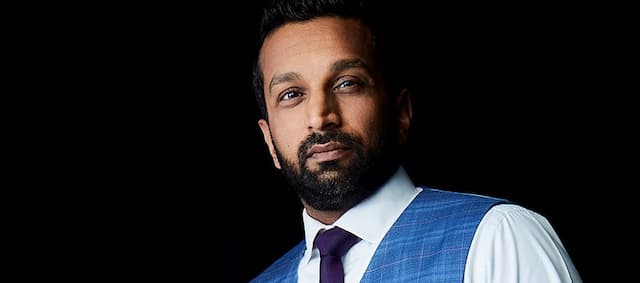John Ondrasik on His Afghanistan Protest Song
BUCK: We have a special guest with us now, Grammy-nominated singer/songwriter John Ondrasik of Five for Fighting. He’s known for his hits 100 Years and Superman. John was so appalled by our withdrawal from Afghanistan under the Biden administration that he wrote a song expressing his anger which has gone viral.
The song, Blood on My Hands, really connects with the military, so much so that John decided to donate all proceeds to Afghan refugee and relief charities, as well as the Gary Sinise Foundation. He did a show in New York City here a couple nights ago. Our producer Ali actually went. It was free for all veterans. John joins us now. John, thanks for being on the show.
ONDRASIK: Buck, thanks for having me.
BUCK: So, I understand this all started ’cause you got a phone call from a friend — a private citizen — who was organizing evacuation missions out of Afghanistan at the end of the summer. Tell us what happened.
ONDRASIK: That’s true. I had no intention of writing a song, took no pleasure in releasing this type of song. But I have a friend who called me and said, “Hey, I need a contact. I’m organizing evacs of AMCITS from Afghanistan,” and this was after we left, our last troop left the ground. There was quiet on the line, and I said, “So, you’re telling me you’re gonna risk your life and your colleagues’ lives to go rescue Americans we left behind?”
And she kind of choked up and said, “Yeah,” and the song started… The first view verses came about, and it really wrote itself when the president came out and gave his “extraordinary success” speech, and I kept waiting for Milley and Austin to come out and clarify that. I have great respect for the military.
I’ve spent my whole career playing for the military. But when they echoed the “extraordinary airlift” narrative, I realized very quickly this was a political operation, not a military one, and the lines about them and their kind of disgrace of their honor wrote themselves.
BUCK: John, you’ve always been very supportive of the military. You’ve performed a lot, I know, for the USO. You have donated music to the troops. You performed in the 9/11 concert in New York City. What was it about this particular event that really propelled you to action?
ONDRASIK: I think deep down we all know that the American honor has been damaged. We’ve lost a piece of our soul by not just abandoning American citizens but abandoning allies that fought with us — that maybe saved our soldiers’ lives — to the Taliban. And I think until we admit that complicity, there has been zero accountability, as you know.
You’ve been documenting this from day one. Nobody’s resigned. Nobody’s been fired. Until we admit that complicity and take some accountability for our role in this disaster, especially for women and children in Afghanistan, that shame in our gut, like any shame, will continue to fester, and our moral conscience will continue to erode.
So I think it’s gonna have generational consequences, and I am just so hurt for our veterans who every night after the show come up to me; they can’t even talk. There’s tears in their eyes, there’s anger, there’s shame, and I noticed with the song… You mentioned the concert in New York.
Back in the day, I saw a song 20 years ago help people get to a really hard time songs, cathartic in ways other things can’t and our troops need to know they are not alone; America is feeling their pain and their anger, and I think that’s one reason the song’s resonating.
BUCK: When you heard about the popular Afghan folk singer Fawad Andarabi, who was dragged from his home and shot by the Taliban in late August, what impact did that have on you as a fellow musician?
ONDRASIK: You tell me. It’s like you would think that if a free folk singer was killed by the Taliban in another country, maybe Rolling Stone would put him on their cover. Maybe all these people — AOC and all the folks that have their virtue hill and they talk about compassion — when we’re seeing the biggest women’s rights disaster in a generation might speak up about that.
The music industry… Look, Buck, we know if I would have written the same song if Donald Trump was president and only the name would change. We know I’d be the toast of the town practicing my Grammy speech. Where are the usual suspects who talk about compassion, oppression? They should be writing these songs, not just me. It’s a disgrace.

BUCK: John, what do veterans who come up to you who have been really affected by this song, what are they saying to you, and what would you now with all 50 states having radio stations and a lot of veterans in our audience here, what do you want to say to them?
ONDRASIK: They’re angry at Milley and Austin. They feel that the usual troops on the grounds when they make a mistake, they’re held accountable but these guys are gonna get book deals and do hundred thousand dollars keynotes but mostly they’re ashamed because people that were fighting by their side had been left behind, now, here’s the good news: The American promise has not been forgotten.

We have vets who have drained their bank accounts, they have quit their jobs, they are down there as we speak performing operations to keep the American promise alive, and you will have them on your show one day their stories are heroic. I talk to them and some of my contacts every day. So to the vets out there: We love you, we have your back, we know, we know what you’re feeling. If you need help, Gary Sinise Foundation, there’s so many outlets. America has your back even though our government has let you down.
BUCK: We’re gonna post John’s song, Blood on My Hands, at our website, ClayAndBuck.com. You can also find out more about what John’s doing to help veterans there. John Ondrasik of Five for Fighting. John, great to have you here, sir. Come back soon.
ONDRASIK: Thanks, buddy. Have a good weekend. Take care.





